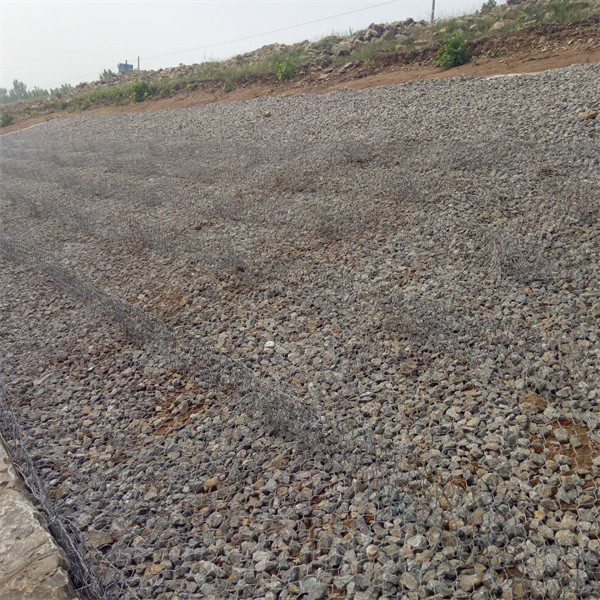نويابىر . 04, 2024 22:13 Back to list
high quality gabion wall meaning
The Meaning and Significance of High-Quality Gabion Walls
Gabion walls are structures made from wire mesh baskets filled with rocks, stones, or other materials, commonly used in civil engineering and landscape architecture. The term “gabion” originates from the Italian word 'gabbione,' which means 'large cage.' High-quality gabion walls play a crucial role in various applications, particularly in erosion control, slope stabilization, and aesthetic landscaping. Understanding the meaning and significance of high-quality gabion walls can help us appreciate their contribution to modern infrastructure and environmental sustainability.
Understanding Gabion Walls
At their core, gabion walls are designed to be both functional and robust. They are typically constructed from galvanized wire mesh or PVC-coated steel, which provides durability and resistance to corrosion. The wire cages are filled with natural stones, recycled concrete, or other suitable materials, making them not only cost-effective but also environmentally friendly. The design allows for flexibility in shapes and sizes, adapting to the specific requirements of a project.
Gabion walls can serve multiple purposes, including
1. Erosion Control By creating barriers along riverbanks, slopes, or coastlines, gabion walls effectively reduce soil erosion caused by water and wind. Their porous structure allows water to flow through, minimizing hydrostatic pressure behind the wall and stabilizing the surrounding soil.
2. Structural Support In construction, gabion walls provide lateral support to slopes and stabilize foundations. They can be used to prevent landslides and manage fill materials, ensuring the safety and longevity of roads and structures.
3. Ecological Benefits Gabions contribute to biodiversity by creating habitats for flora and fauna. The stones used in gabion walls can provide a substrate for moss, plants, and small animals, fostering a healthy ecosystem.
4. Aesthetic Appeal In landscaping, gabion walls can be integrated into gardens, parks, and public spaces to create visually appealing designs. The natural look of stones combined with greenery can enhance the beauty of an area while serving a practical purpose.
high quality gabion wall meaning

The Importance of High-Quality Gabion Walls
The term “high-quality” in the context of gabion walls signifies attention to detail in their construction and materials. Here are several reasons why high-quality gabion walls are crucial
1. Durability High-quality materials ensure that gabion walls withstand environmental pressures such as water flow, freeze-thaw cycles, and erosion. They are less likely to corrode or degrade, leading to a longer lifespan for the structure.
2. Stability Well-built gabion walls offer superior stability, essential for supporting adjacent soil and structures. High-quality construction techniques ensure that the walls can effectively handle load pressures without collapsing or shifting.
3. Safety Poorly constructed or low-quality gabion walls can pose safety risks, such as failures during heavy rains or landslides. Ensuring high construction standards mitigates these risks and protects both infrastructure and human life.
4. Cost-Effectiveness Although the initial investment in high-quality materials and construction may be higher, the future savings on maintenance and potential repairs make them a cost-effective solution in the long run.
5. Environmental Responsibility Using sustainable materials and focusing on eco-friendly designs in gabion wall construction supports broader environmental goals. High-quality gabion walls reduce the need for extensive excavation and minimize ecological disruption.
Conclusion
In summary, high-quality gabion walls symbolize the harmony between functionality, sustainability, and aesthetics. By understanding their meaning and significance, we can better appreciate their role in erosion control, structural support, ecological development, and enhanced landscape design. Investing in high-quality materials and construction practices ensures that gabion walls remain effective and resilient components of our infrastructure, while also promoting environmental stewardship. As urban areas continue to expand and face challenges from climate change and natural disasters, the importance of durable and effective solutions like gabion walls cannot be overstated. They offer a pathway to create resilient landscapes that benefit both people and the planet.
-
The Role of Galvanized Gabion Mesh in Riverbank Protection
NewsJun.26,2025
-
The Role of Gabion Basket Raised Bed in Sustainable Gardening
NewsJun.26,2025
-
Quality Assurance of Wire Mesh Gabion Baskets
NewsJun.26,2025
-
Installation Guide for Welded Gabion Box
NewsJun.26,2025
-
How to Choose the Right Gabion Box
NewsJun.26,2025
-
Different Types of Gabion Wire Mesh
NewsJun.26,2025
-
Why PVC Coated Gabion Mattress Is the Best Solution for Long-Term Erosion Control
NewsMay.23,2025






